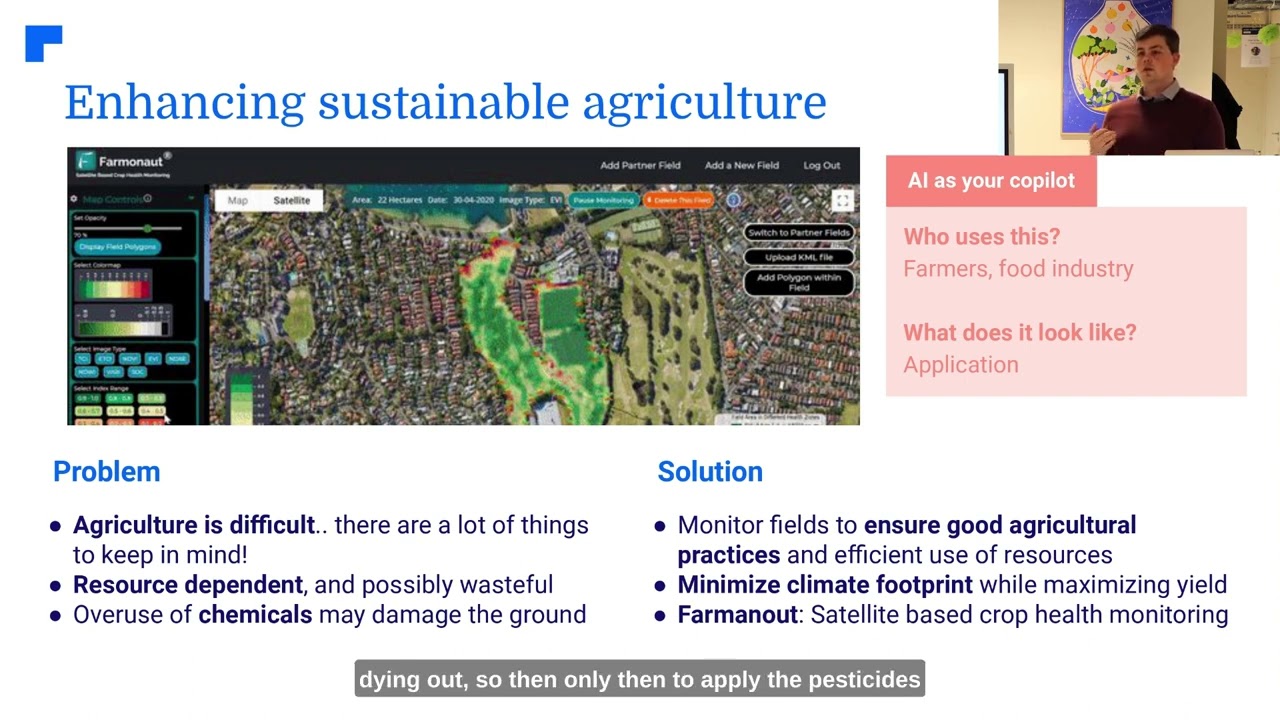Sustainable Agriculture in Queensland: Balancing Climate Change, Banking, and Food Security

“Queensland farmers face new loan requirements tied to emissions reduction targets, impacting 77% of rural communities.”
In the heart of Australia’s agricultural landscape, Queensland stands as a testament to the delicate balance between environmental sustainability and economic prosperity. As we navigate the complexities of climate change, banking practices, and food security, the agricultural industry finds itself at a crucial crossroads. This blog post delves into the intricate web of challenges and opportunities facing Queensland’s farmers, exploring how sustainable agriculture practices are reshaping the future of farming in this vital region.
The Climate Change Conundrum
Climate change is no longer a distant threat but a present reality for Queensland’s agricultural sector. With rising temperatures, unpredictable rainfall patterns, and more frequent extreme weather events, farmers are facing unprecedented challenges in maintaining crop yields and livestock health. The need for adaptation and mitigation strategies has never been more urgent.
- Increased frequency of droughts and floods
- Shifting growing seasons and crop suitability zones
- Rising pest and disease pressures
These environmental changes are not just ecological concerns; they have significant economic implications for the agricultural industry. As we at Farmonaut understand, the ability to monitor and respond to these changes in real-time is crucial for the sustainability of farms across Queensland.
Banking on Change: New Loan Requirements
In a controversial move that has sent ripples through rural communities, major banks have introduced new loan requirements tied to emissions reduction targets. This decision has sparked intense debate about the role of financial institutions in driving environmental policy and its impact on the agricultural sector.
Key aspects of the new loan requirements include:
- Mandatory emissions reduction plans for loan approval
- Regular reporting on carbon footprint and sustainability metrics
- Incentives for adopting green farming practices
While these measures aim to accelerate the transition to sustainable agriculture, they have also raised concerns about the economic viability of small and medium-sized farms. The challenge lies in finding a balance between environmental goals and the financial realities faced by farmers.
Food Security in the Balance
As Queensland grapples with these changes, the question of food security looms large. The state’s agricultural sector plays a vital role in feeding not just Australia but also contributing to global food supplies. The pressure to maintain and increase food production while reducing environmental impact creates a complex equation for farmers to solve.
Factors influencing food security in Queensland:
- Changing crop yields due to climate variability
- Increasing demand for sustainable and locally sourced food
- The need for resilient and diverse agricultural systems
At Farmonaut, we recognize the critical role that technology plays in addressing these challenges. Our satellite-based farm management solutions offer farmers the tools they need to optimize resource use, monitor crop health, and make data-driven decisions that balance productivity with sustainability.
Sustainable Agriculture Practices: A Path Forward
In the face of these challenges, Queensland farmers are increasingly turning to sustainable agriculture practices. These methods not only help in reducing environmental impact but also offer potential economic benefits through improved efficiency and resilience.
| Sustainable Practice | Estimated CO2 Reduction (tonnes/year) | Implementation Cost (AUD) | Adoption Rate (% of farmers) | Potential Economic Benefit (AUD/year) | Banking Incentives |
|---|---|---|---|---|---|
| Crop Rotation | 5,000 | 10,000 – 50,000 | 65% | 20,000 – 100,000 | 0.25% interest rate reduction |
| Precision Agriculture | 10,000 | 50,000 – 200,000 | 40% | 50,000 – 250,000 | Extended loan terms (up to 2 years) |
| Renewable Energy Use | 15,000 | 100,000 – 500,000 | 25% | 30,000 – 150,000 | Green loan products with lower fees |
| Cover Cropping | 3,000 | 5,000 – 20,000 | 55% | 15,000 – 75,000 | 0.5% cashback on loan amount |
| Organic Farming | 8,000 | 30,000 – 150,000 | 15% | 40,000 – 200,000 | Preferential loan approval process |
These practices represent a significant shift in how agriculture is conducted in Queensland. By adopting these methods, farmers can reduce their environmental footprint while potentially improving their economic outcomes. However, the transition to these practices often requires significant investment and support.
The Role of Agritech in Sustainable Farming
As we at Farmonaut have observed, technology plays a crucial role in enabling and accelerating the adoption of sustainable agriculture practices. Our suite of agritech solutions offers innovative ways to address the challenges faced by Queensland farmers.
- Satellite-Based Crop Health Monitoring: Real-time insights into vegetation health and soil moisture levels
- AI-Driven Advisory Systems: Personalized recommendations for crop management and resource optimization
- Blockchain-Based Traceability: Ensuring transparency and trust in agricultural supply chains
These technologies not only help in reducing the environmental impact of farming but also contribute to improved productivity and economic outcomes for farmers.
The Economic Impact of Agricultural Transformation
The shift towards sustainable agriculture in Queensland has far-reaching economic implications. While the initial costs of adopting new practices and technologies can be significant, the long-term benefits are potentially transformative.
Economic considerations include:
- Job creation in the agritech and sustainable farming sectors
- Increased resilience to climate-related economic shocks
- Potential for premium pricing for sustainably produced commodities
- Reduced input costs through more efficient resource use
However, the transition also poses challenges, particularly for smaller farms that may struggle with the upfront costs of new technologies and practices. This is where the role of financial institutions and government support becomes crucial.
Rural Banking Services: Adapting to New Realities
The changing landscape of agriculture in Queensland has necessitated a shift in how rural banking services operate. Financial institutions are increasingly recognizing their role in supporting the transition to sustainable farming practices.
Key developments in rural banking services:
- Introduction of green loan products tailored for sustainable agriculture
- Partnerships with agritech companies to provide integrated financial and technological solutions
- Enhanced risk assessment models that account for climate resilience
At Farmonaut, we see the potential for collaboration between agritech providers and financial institutions to create comprehensive support systems for farmers. Our satellite-based verification services, for instance, can aid in more accurate and efficient loan assessments for agricultural projects.
Explore Farmonaut’s API for satellite-based agricultural insights
Environmental Sustainability: A Collective Responsibility
“Australia’s agricultural sector contributes 13% to the national GDP while striving for a 30% reduction in carbon emissions by 2030.”
The push for environmental sustainability in Queensland’s agriculture sector is not just the responsibility of farmers. It requires a collective effort involving government, industry, and consumers.
Key areas of focus for environmental sustainability:
- Water conservation and efficient irrigation practices
- Soil health management and carbon sequestration
- Biodiversity preservation and ecosystem services
- Reduction of chemical inputs through integrated pest management
Farmonaut’s technologies contribute to these efforts by providing farmers with the data and insights needed to make environmentally sound decisions. Our AI-driven advisory systems, for instance, can help optimize resource use and minimize environmental impact.
Agricultural Industry Advocacy: Navigating Change
As the agricultural landscape evolves, industry advocacy groups play a crucial role in representing the interests of farmers and rural communities. These organizations are at the forefront of negotiating the balance between environmental goals and economic realities.
Key advocacy efforts include:
- Lobbying for supportive policies and financial incentives for sustainable farming
- Promoting research and development in climate-resilient agriculture
- Facilitating knowledge sharing and best practices among farmers
- Advocating for fair and practical implementation of emissions reduction targets
The role of these advocacy groups is essential in ensuring that the transition to sustainable agriculture is equitable and considerate of the diverse needs of Queensland’s farming communities.
The Path to Food Security in a Changing Climate
Ensuring food security in the face of climate change is perhaps the most critical challenge facing Queensland’s agricultural sector. The goal is not just to maintain current production levels but to increase them sustainably to meet growing demand.
Strategies for enhancing food security include:
- Diversification of crop varieties and farming systems
- Investment in climate-resilient infrastructure
- Adoption of vertical farming and urban agriculture
- Strengthening local food systems and reducing food waste
Farmonaut’s technologies play a vital role in this effort by enabling precision agriculture and providing early warning systems for potential crop failures. Our satellite-based crop health monitoring helps farmers make timely interventions to protect yields and ensure food security.
Access Farmonaut’s API Developer Docs for integrated agricultural solutions
Carbon Reduction in Agriculture: Challenges and Opportunities
The agricultural sector’s contribution to carbon emissions is significant, but so is its potential for carbon sequestration. Queensland farmers are increasingly exploring ways to reduce their carbon footprint while also creating new revenue streams through carbon credits.
Key carbon reduction strategies in agriculture:
- Adoption of no-till farming practices
- Implementation of agroforestry systems
- Use of biochar and other soil amendments
- Methane capture from livestock operations
Farmonaut’s carbon footprinting tools help farmers track their emissions and identify opportunities for reduction. By providing data-driven insights, we enable farmers to make informed decisions about carbon management practices.

The Role of Technology in Sustainable Agriculture
As we at Farmonaut have witnessed firsthand, technology is a game-changer in the pursuit of sustainable agriculture. From precision farming to artificial intelligence, technological innovations are helping farmers do more with less.
Key technologies driving sustainable agriculture:
- IoT sensors for real-time monitoring of soil and crop conditions
- Drones for precision application of inputs and crop assessment
- Machine learning algorithms for predictive analytics in farming
- Blockchain for transparent and efficient supply chain management
These technologies not only improve efficiency and reduce environmental impact but also provide valuable data that can inform policy decisions and financial assessments in the agricultural sector.
Community and Social Impact of Agricultural Transformation
The shift towards sustainable agriculture in Queensland has profound implications for rural communities. While the changes bring challenges, they also offer opportunities for community renewal and social innovation.
Social impacts of agricultural transformation:
- Creation of new job opportunities in agritech and sustainable farming
- Revitalization of rural communities through sustainable development initiatives
- Enhanced food security and health outcomes for local populations
- Strengthening of social bonds through collaborative farming practices
At Farmonaut, we believe that technology can play a role in fostering community resilience. Our platforms not only provide agricultural insights but also create opportunities for knowledge sharing and collaboration among farmers.
The Future of Farming in Queensland
As we look to the future, the path for Queensland’s agricultural sector is one of continuous adaptation and innovation. The challenges posed by climate change, evolving banking practices, and the need for food security will require ongoing collaboration between farmers, technologists, financial institutions, and policymakers.
Key trends shaping the future of farming in Queensland:
- Increased adoption of regenerative agriculture practices
- Integration of artificial intelligence and robotics in farming operations
- Development of climate-resilient crop varieties through biotechnology
- Expansion of carbon farming and ecosystem services markets
Farmonaut is committed to being at the forefront of this agricultural revolution, providing cutting-edge technologies that empower farmers to meet these challenges head-on.
Conclusion: A Balanced Approach to Sustainable Agriculture
The journey towards sustainable agriculture in Queensland is complex and multifaceted. It requires a delicate balance between environmental stewardship, economic viability, and social responsibility. As we navigate this transition, it’s clear that technology, innovation, and collaboration will be key drivers of success.
At Farmonaut, we are proud to be part of this transformative journey, providing farmers with the tools and insights they need to thrive in a changing world. By embracing sustainable practices and leveraging cutting-edge technology, Queensland’s agricultural sector can not only meet the challenges of climate change and food security but also emerge as a global leader in sustainable farming.
The path forward may be challenging, but with collective effort and innovative solutions, we can create a resilient, sustainable, and prosperous future for Queensland’s agriculture.
FAQ Section
Q: What are the main challenges facing sustainable agriculture in Queensland?
A: The main challenges include climate change impacts, new banking loan requirements tied to emissions reduction, balancing economic viability with environmental sustainability, and ensuring food security.
Q: How are banks influencing sustainable agriculture practices?
A: Banks are introducing new loan requirements tied to emissions reduction targets, offering incentives for adopting green farming practices, and developing green loan products tailored for sustainable agriculture.
Q: What role does technology play in sustainable farming?
A: Technology plays a crucial role through satellite-based crop monitoring, AI-driven advisory systems, precision agriculture tools, and blockchain-based traceability solutions, all of which help optimize resource use and reduce environmental impact.
Q: How can farmers balance economic viability with environmental sustainability?
A: Farmers can achieve this balance by adopting precision agriculture techniques, investing in renewable energy, implementing crop rotation and cover cropping, and utilizing data-driven decision-making tools to optimize resource use.
Q: What are some key sustainable agriculture practices being adopted in Queensland?
A: Key practices include crop rotation, precision agriculture, renewable energy use, cover cropping, and organic farming methods, all aimed at reducing environmental impact while maintaining or improving productivity.




















